Tory-DUP deal to face legal challenge
- Published
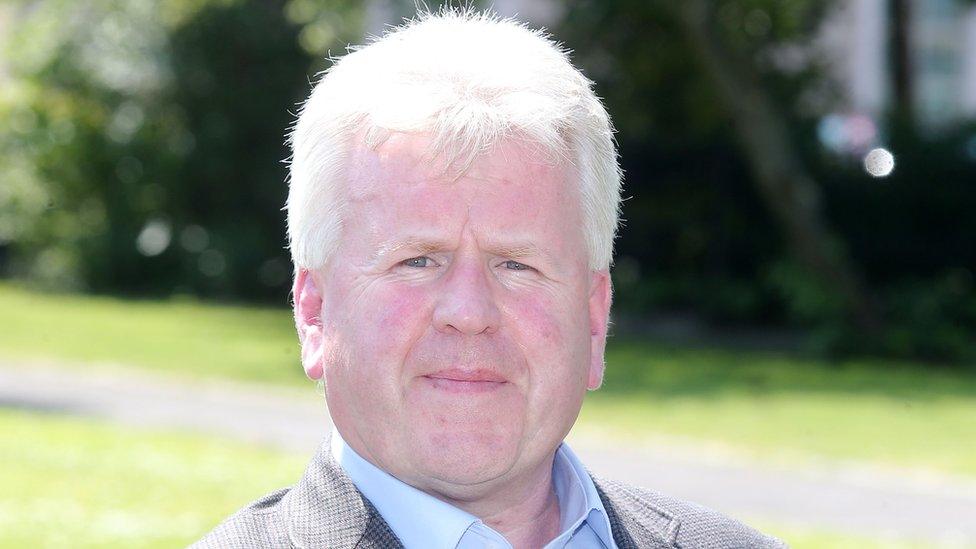
Ciaran McClean stood unsuccessfully for the Green Party in West Tyrone in June's election
A mental health worker is to legally challenge the UK government's deal with the Democratic Unionist Party (DUP).
Ciaran McClean, who is a member of the Green Party, says the pact breaches the Good Friday Agreement and the Bribery Act.
The DUP has agreed to support the minority Conservative government in important votes, in return for money for Northern Ireland.
A former government lawyer said the bribery claim was "spurious".
The government has said it believes the confidence and supply agreement, external is within the law.
Mr McClean has launched a crowdfunding campaign to fund the judicial review.
David Greene, Mr McClean's solicitor, said an application for a judicial review would be submitted either on Monday or Tuesday.
On his crowdfunding webpage, Mr McClean, who stood unsuccessfully for the Green Party in West Tyrone in June's election, says the government is "threatening hard-won peace" with its DUP deal.
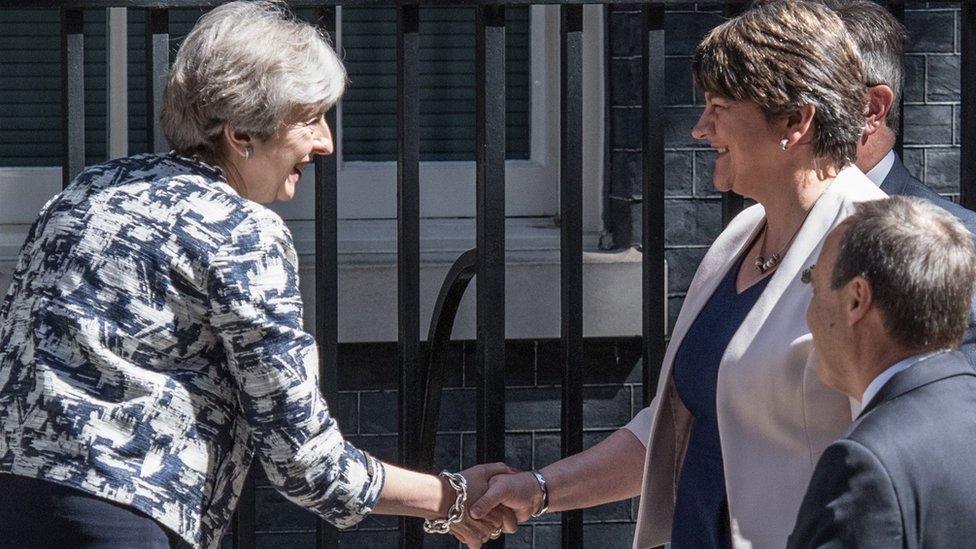
The Tory-DUP deal came two weeks after June's election resulted in a hung Parliament
"The Tories are being propped up by the DUP in order to cling to power after the recent election. This horrifies me. It's straight bribery - money for votes.
"The deal flies in the face of the Good Friday Agreement, under which the government is obligated to exercise its power with 'rigorous impartiality' on behalf of all the people in the diversity of their identities and traditions."
He is pursuing the legal challenge as an individual, not on behalf of the Green Party.
'Citizen's entitlement'
Mr McClean's solicitor is a senior partner at London-based Edwin Coe solicitors, who represented hairdresser Deir Tozetti Dos Santos, one of the claimants in the successful Brexit challenge in the Supreme Court.
Mr Greene told the BBC there had been a "public outcry" over the Tory-DUP deal.
"It's not a question of foisting views and the important point is this is about the rule of law," he said.
"This is about a citizen's entitlement to go in front of a court and say that doesn't look right and to be able to challenge it in some meaningful way."
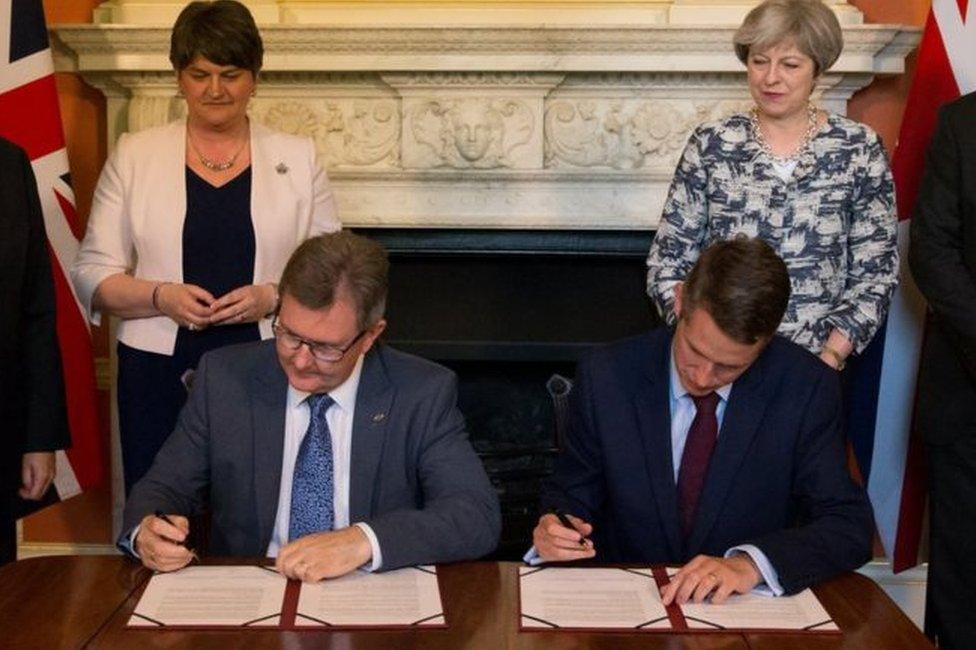
DUP MP Sir Jeffrey Donaldson and Tory Chief Whip Gavin Williamson sign off on the deal
Alberto Costa, former government lawyer and now MP for South Leicestershire, told the BBC the investment given to Northern Ireland as part of the deal was not a "personal inducement" and Prime Minister Theresa May had a constitutional duty to form a government.
He said the deal was "transparent and lawful" and the bribery claim was "vexatious" and "totally without merit".
Under the confidence and supply arrangement, the DUP guarantees that its 10 MPs will vote with the government on the Queen's Speech, the Budget, and legislation relating to Brexit and national security - while Northern Ireland will receive an extra £1bn over the next two years.
While rival parties in Northern Ireland have largely welcomed the additional funding, concerns have been raised that the deal could undermine the peace process and devolution negotiations, with the UK government dependent on the support of the DUP.
The deal was also widely criticised by opposition parties in the UK.
Labour branded it "shabby and reckless", while the Welsh First Minister Carwyn Jones called it a "straight bung" and said it "kills the idea of fair funding".
- Published26 June 2017
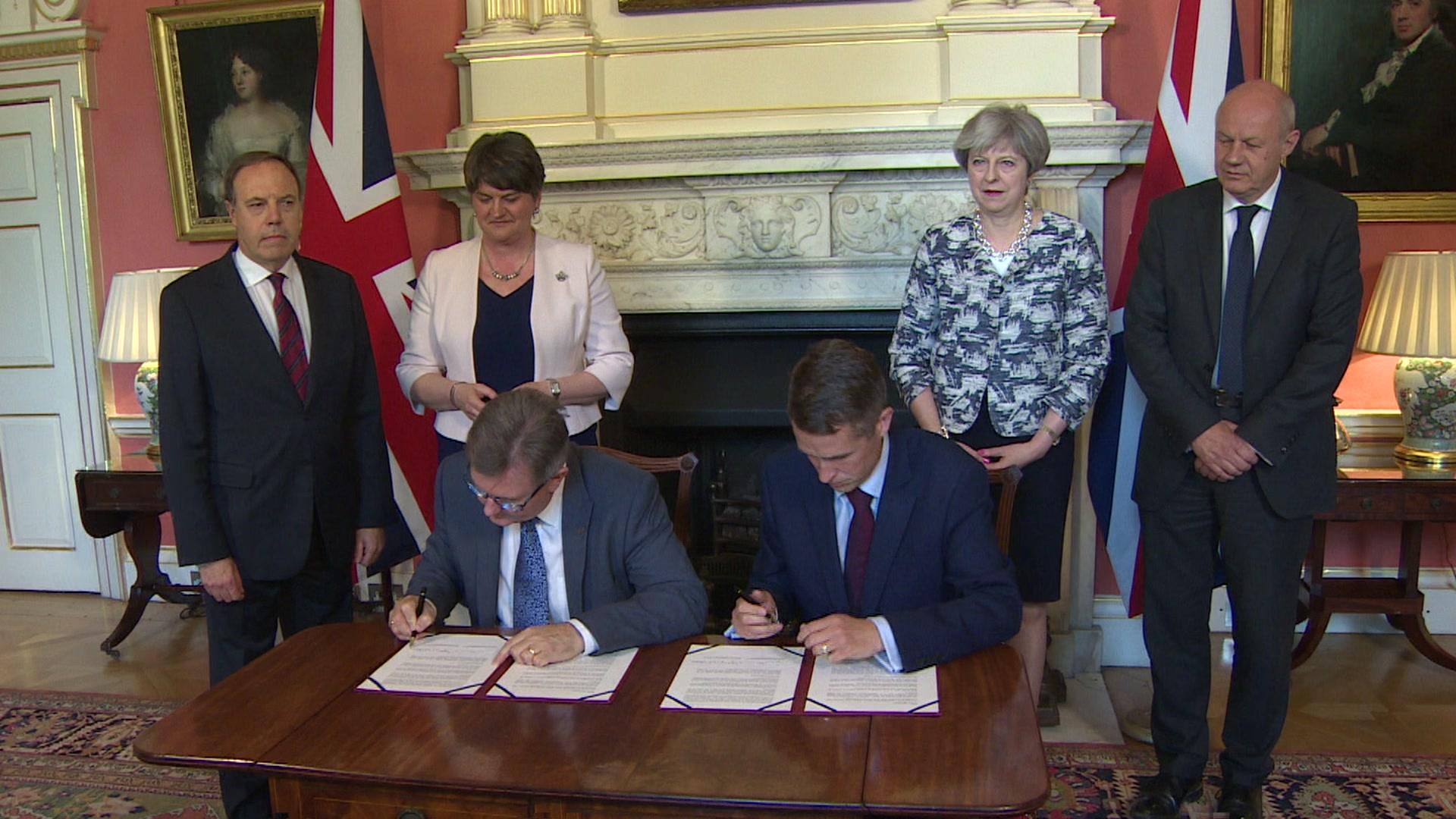
- Published26 June 2017
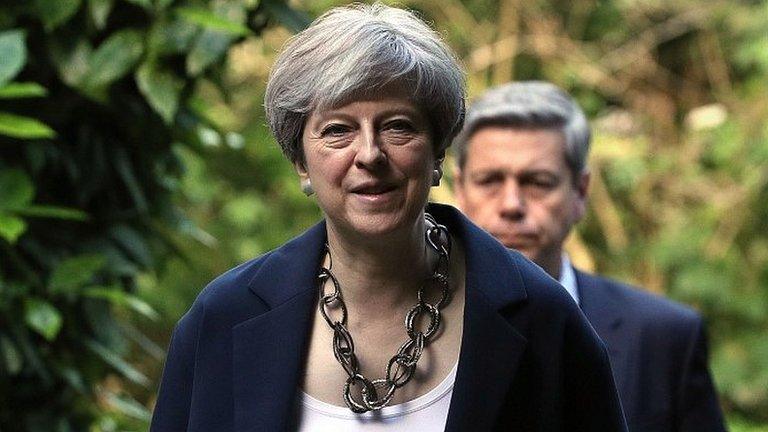
- Published26 June 2017
